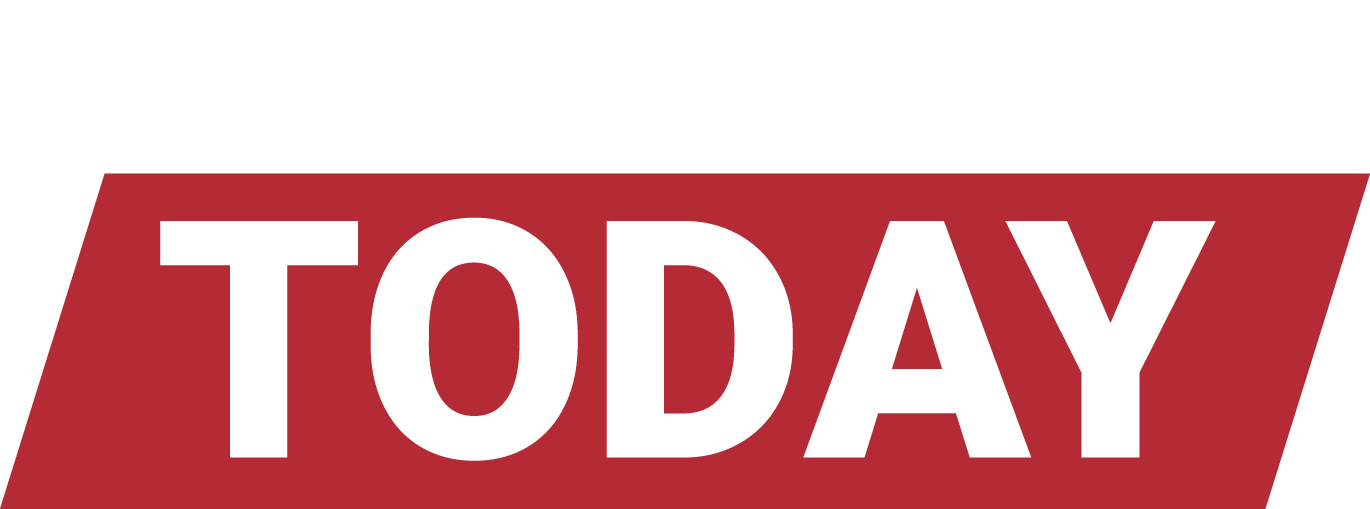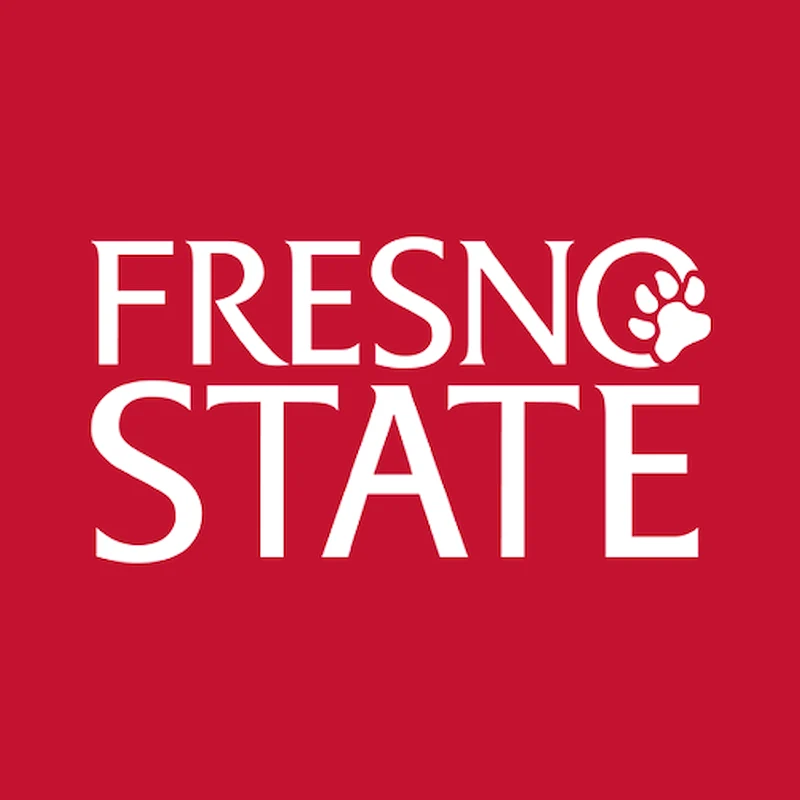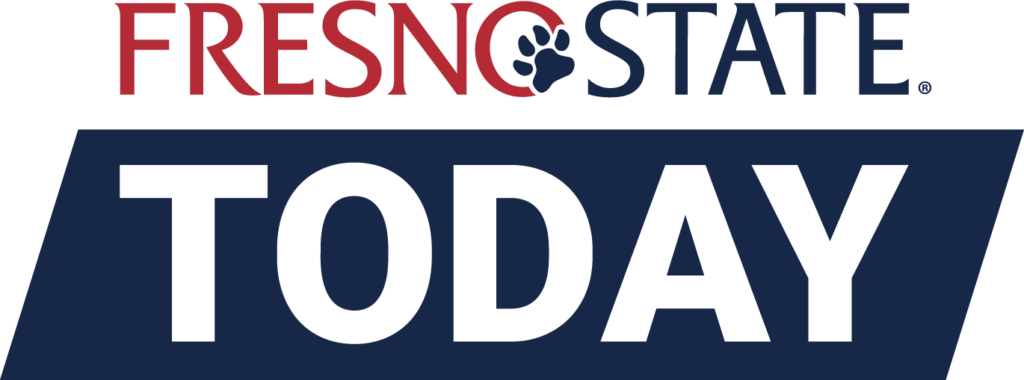Dr. Ángel de Jesus González was selected as a 2025 Equity and Inclusion Young Professional Fellow, the Association for Public Policy Analysis and Management announced in August.
Only five fellowships are granted each year and González, an assistant professor in the Kremen School of Education and Human Development at Fresno State, joins scholars from UC Irvine, Rice University and Texas A&M. González, who uses the pronoun they, will accept the award in person at a research conference in November. According to the Association for Public Policy Analysis and Management, the fellowship is designed to support professionals from traditionally underrepresented backgrounds who have received their master’s or doctoral degrees in the past five years.
The fellowship comes as two other high-profile fellowships González received last year are wrapping up: the American Association of Hispanics in Higher Education, Incorporated Faculty Fellowship and the Education Policy Fellowship Program Fellowship.
For González, who teaches in Fresno State’s Higher Education Administration and Leadership (HEAL) program, these national fellowships in equity and inclusion carry significance as they honor research grounded in their own journey through higher education and the experiences of other family members.
The first in their family to go to college, González double majored in environmental science and Spanish at Whittier College, a small, private liberal arts institution just a few miles from Southeast Los Angeles, where they grew up.
“I wanted to work for the U.S. Geological Survey and do earthquake monitoring.”
As a student at Whittier College, González discovered a passion for advocacy and inclusion, helping lead initiatives that supported both students and campus staff, including organizing efforts to improve working conditions for housekeeping employees.
“A lot of the involvement that I was in was because of the opportunity to lead, but really the opportunity to lead change,” González said. “If you think about my commitment to organizational change, where it began was as a student, where I was part of these roles.”
While working at the Culture Center at Whittier, the director suggested González consider a career in higher education and student affairs. The director later took González to a graduate school fair and the National Association of Student Personnel Administrators (NASPA) regional conference for student affairs.
“We went to that conference and it solidified, ‘I think this is something that I need to follow because I enjoy it, and this is the work that I’ve been doing,’” González said.
González enrolled in the graduate program at San Diego State University and earned a master’s in post-secondary educational leadership. Following graduation, González moved to the Seattle area to become resident director at Pacific Lutheran University, then spent several years at Shoreline Community College as director of student life.
While working at community colleges in Washington, two of González’s sisters were attending community colleges in California. González’s sisters would often talk about their experiences, what they enjoyed and also frustrations and barriers they were facing. González felt the pull to help more students like them as well as students like González, who identifies as queer nonbinary.
González wanted to work where minoritized students could be assisted in moving beyond systemic barriers that often go unseen by administrators in higher education.
“I wanted to be in a more diverse campus,” González said. “I applied to a community college where I played a variety of roles and that really cemented my commitment to working at community colleges and then doing research for community college. It kind of catapulted me into my doctoral program and the type of research that I ended up doing.”
In 2019, González returned to California to take the director of student development position at Grossmont College, a community college in El Cajon, while pursuing a doctoral degree in educational leadership with a concentration in community college at San Diego State University. In 2022, González worked as a postdoctoral research associate at the University of Southern California’s Pullias Center for Higher Education and led a Bill and Melinda Gates Foundation-funded project on advancing systemic change.
In fall 2023, González accepted a position as an assistant professor in the Higher Education Administration and Leadership program at Fresno State.
“I was very intentional in looking at institutions [where] the students’ demographics mirrored the research communities that I work with, and then my own experiences,” González said. “I knew HEAL as a program, because I worked in student affairs. It had a reputation for producing amazing scholar-practitioners who work in the field of higher education. Not just in the state, but nationally.”
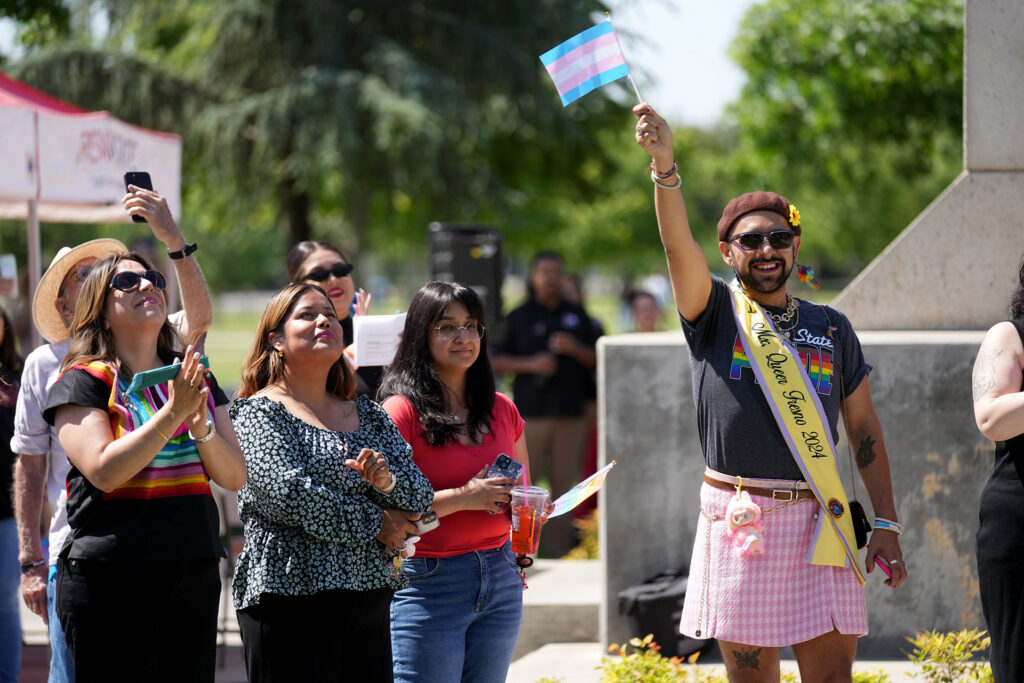

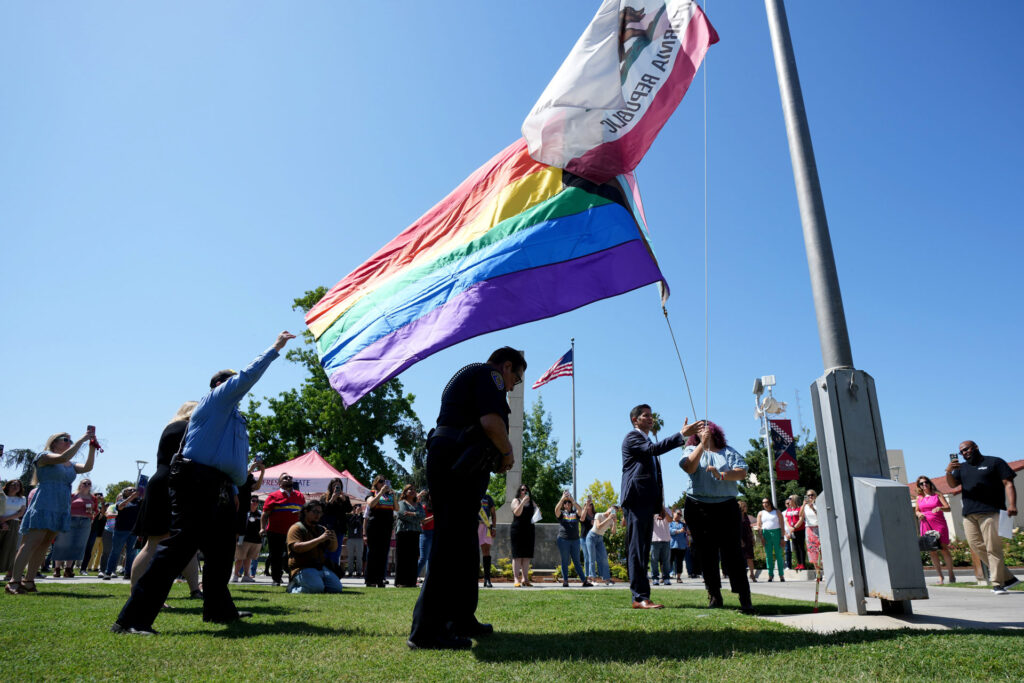
In just the past five years, González has published dozens of articles and empirical studies in some of the top education journals in the country, and, according to Google Scholar, has been cited over 340 times. González’s research focuses on the sense of belonging for queer and trans and Latinx students at community colleges and Hispanic-Serving Institutions.
“How are individuals experiencing organizations, and what are they experiencing? What are the mechanisms that either create opportunities for their success or hinder their ability to succeed in higher education?” González said. “[I am] really focusing on our minority students, our students who have been disproportionately impacted, such as those who are students of color, queer and trans students, and examining the organizational terrains.”
González published a qualitative study, “Whenever I See Those Little Rainbow Stickers, I Know That There Is a Place You Can Go’: Visibility and Sense of Belonging for Queer and/or Trans Community College Students,” in the Journal of Diversity in Higher Education (2024). The study found that just the presence of rainbows, pride flags and safe zone stickers communicated a sense of belonging to queer and transgender students.
“In places where there were visual cues, it maybe allowed at least a small sense of hope or relief,” González explained.
González said the community college students interviewed felt that even though they may have had a negative experience on campus at some point, they could see the LGBTQIA+ imagery and feel comfortable in those spaces.
However, the study also found that queer and transgender students were often responsible for creating and distributing the rainbow and safe space stickers, placing that burden of belonging on the students themselves. It also found the students had a strong desire to see inclusion on a deeper level within their institutions, beyond the pride centers, such as queer studies courses or more LGBTQIA+ perspectives included in existing courses.
González’s latest research, “Protecting Equity Together: Shared Equity Leadership in Restrictive and Precarious Legal Environments,” explores just that, but for a different reason. The article, published in the Journal of Higher Education (July 2025), and co-written by Jordan Harper, Adrianna Kezar, Elizabeth Holcombe, Natsumi Ueda and Jude Paul Matias Dizon, explores how institutions can protect and continue to advance diversity, equity and inclusion in restrictive environments that seek to dismantle such efforts.
The article notes that the traditional model of siloing this work with specific places and positions, such as campus cultural centers with chief diversity officers, makes those centers and positions easy targets for political opponents.
“If that office shuts down or that person gets let go, does that mean that that student is no longer at the campus, that their support is no longer needed? No, it’s actually needed more than ever,” González said.
Through interviews with leaders across different campuses, the authors posit that institutional leaders can strategically maneuver through restrictive and precarious legal environments using the shared equity leadership model. This actively moves the work from sometimes vulnerable centers to being embedded in all areas of campus, creating more of a network than a single unit.
“We’ve seen that time again how certain entities persist over time even amongst shifting political currents and social pressures in education,” González said. “There might not be a hub for the [DEI] work, but there are other spokespeople or other places where this network touches, so that it’s starting to be embedded across the organization.”
The authors also recommend updating the communication strategy, moving away from using targeted keywords such as “inclusion,” “diversity” or “equity,” and instead use terms like “opportunity,” “fairness,” “inclusive excellence,” “belonging” or “student success.”
In challenging budgetary times for the California State University system, González remains committed to researching better ways to help minoritized students feel like they belong in higher education – specifically, community colleges. González has additional research articles and book chapters currently under review, and is working with students to present at a regional conference this fall.
